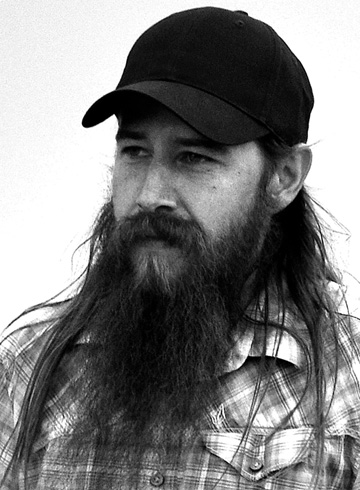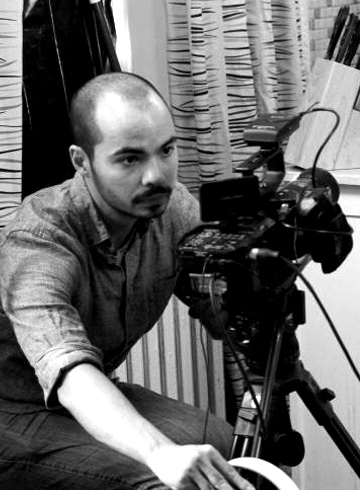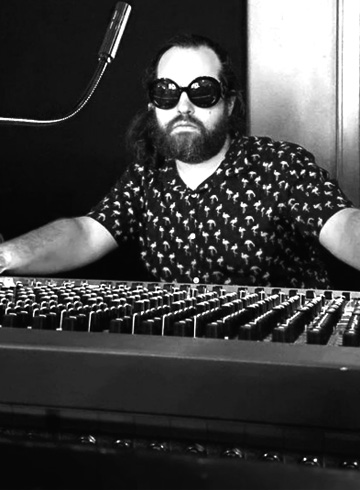Half-Life of Memory
Press
Click for Article:
"Searing Rocky Flats Documentary A Demand For Better Answers"
"A new film digs into memories of the controversial plant"
“'Half-Life of Memory' preserves the stories of Rocky Flats"
"New film tackles the dangerous legacy of Rocky Flats"
"Rocky Flats Nuclear Amnesia Smashed by "Half-Life of Memory"
New Film - "Half-Life of Memory: America's Forgotten Atomic Bomb Factory"
"Searing Rocky Flats Documentary A Demand For Better Answers"
Click for Article:
"A new film digs into memories of the controversial plant"
“'Half-Life of Memory' preserves the stories of Rocky Flats"
"New film tackles the dangerous legacy of Rocky Flats"
"Rocky Flats Nuclear Amnesia Smashed by "Half-Life of Memory"
New Film - "Half-Life of Memory: America's Forgotten Atomic Bomb Factory"
"Searing Rocky Flats Documentary A Demand For Better Answers"
Click for Article:
"Searing Rocky Flats Documentary A Demand For Better Answers"
"A new film digs into memories of the controversial plant"
“'Half-Life of Memory' preserves the stories of Rocky Flats"
"New film tackles the dangerous legacy of Rocky Flats"
"Rocky Flats Nuclear Amnesia Smashed by "Half-Life of Memory"
New Film - "Half-Life of Memory: America's Forgotten Atomic Bomb Factory"
"Searing Rocky Flats Documentary A Demand For Better Answers"
Click for Article:
"A new film digs into memories of the controversial plant"
“'Half-Life of Memory' preserves the stories of Rocky Flats"
"New film tackles the dangerous legacy of Rocky Flats"
"Rocky Flats Nuclear Amnesia Smashed by "Half-Life of Memory"
New Film - "Half-Life of Memory: America's Forgotten Atomic Bomb Factory"
"Searing Rocky Flats Documentary A Demand For Better Answers"
Click for Article:
"Searing Rocky Flats Documentary A Demand For Better Answers"
"A new film digs into memories of the controversial plant"
“'Half-Life of Memory' preserves the stories of Rocky Flats"
"New film tackles the dangerous legacy of Rocky Flats"
"Rocky Flats Nuclear Amnesia Smashed by "Half-Life of Memory"
New Film - "Half-Life of Memory: America's Forgotten Atomic Bomb Factory"
"Searing Rocky Flats Documentary A Demand For Better Answers"
Click for Article:
"A new film digs into memories of the controversial plant"
“'Half-Life of Memory' preserves the stories of Rocky Flats"
"New film tackles the dangerous legacy of Rocky Flats"
"Rocky Flats Nuclear Amnesia Smashed by "Half-Life of Memory"
New Film - "Half-Life of Memory: America's Forgotten Atomic Bomb Factory"
"Searing Rocky Flats Documentary A Demand For Better Answers"
Synopsis
In the suburbs of Denver, the U.S. secretly manufactured thousands of atomic weapons, leaving behind a toxic legacy that will persist for generations.
The Rocky Flats nuclear weapons plant churned out a staggering 70,000 atomic bombs, each serving as a "trigger" for thermonuclear warheads. Concealed by government secrecy, the plant's fires, leaks, and illicit dumping of nuclear waste contaminated the Denver area with long-lived radioactive toxins.
A major - and highly visible - plutonium fire sparked a decade of mass protests, culminating in an unprecedented FBI raid that ultimately shuttered the plant. Today, the radioactive legacy of Rocky Flats continues to threaten public health, yet surprisingly few people are aware the plant ever existed.
"PLUTONIUM HAS A HALF-LIFE OF 24,000 YEARS. THE HALF-LIFE OF MEMORY, BY CONTRAST, IS A MUCH BRIEFER THING.
THE CONTAMINATION AT ROCKY FLATS WILL LONG OUTLIVE OUR EFFORTS TO CONTROL OR EVEN REMEMBER IT."
-Hannah Nordhaus
"PLUTONIUM HAS A HALF-LIFE OF 24,000 YEARS. THE HALF-LIFE OF MEMORY, BY CONTRAST, IS A MUCH BRIEFER THING. THE CONTAMINATION AT ROCKY FLATS WILL LONG OUTLIVE OUR EFFORTS TO CONTROL OR EVEN REMEMBER IT."
-Hannah Nordhaus
'PLUTONIUM HAS A HALF-LIFE OF 24,000 YEARS. THE HALF-LIFE OF MEMORY, BY CONTRAST,
IS A MUCH BRIEFER THING. THE CONTAMINATION AT ROCKY FLATS WILL LONG OUTLIVE
OUR EFFORTS TO CONTROL OR EVEN REMEMBER IT.'
-Hannah Nordhaus
Trailer
Select Interviews
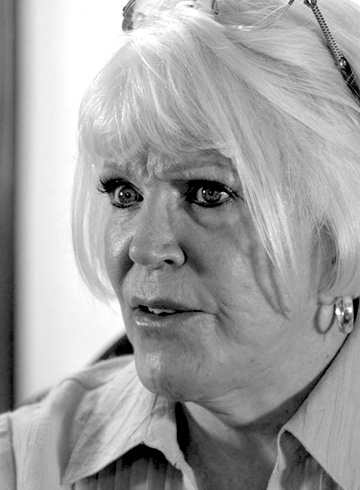
Judy Padilla is a former Rocky Flats worker, cancer survivor, widow, and advocate. Padilla worked on the front lines of Rocky Flats production, shaping plutonium "triggers" inside steel-encased gloveboxes. After developing cancer, she took six months off for surgery but returned to work at Rocky Flats until its closure in 2005.
Judy Padilla
Former Rocky Flats Worker

Judy Padilla is a former Rocky Flats worker, cancer survivor, widow, and advocate. Padilla worked on the front lines of Rocky Flats production, shaping plutonium "triggers" inside steel-encased gloveboxes. After developing cancer, she took six months off for surgery but returned to work at Rocky Flats until its closure in 2005.
Judy Padilla
Former Rocky Flats Worker
and cancer survivor
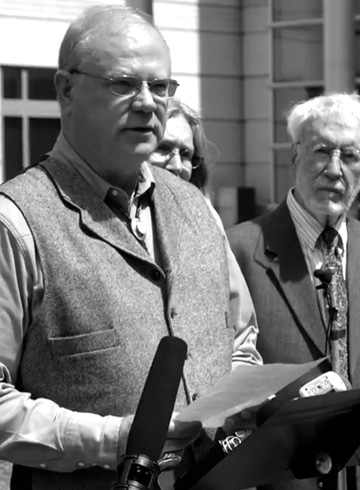
Jon Lipsky is a retired FBI agent, former police officer, and whistleblower who led the landmark FBI raid on the Rocky Flats nuclear weapons plant in 1989. His investigation uncovered widespread pollution, cover-ups, and illegal dumping of nuclear waste at Rocky Flats, which led to the facility's permanent closure and a halt in U.S. atomic bomb production.
Jon Lipsky
Former FBI agent

Jon Lipsky is a retired FBI agent, former police officer, and whistleblower who led the landmark FBI raid on the Rocky Flats nuclear weapons plant in 1989. His investigation uncovered widespread pollution, cover-ups, and illegal dumping of nuclear waste at Rocky Flats, which led to the facility's permanent closure and a halt in U.S. atomic bomb production.
Jon Lipsky
Former FBI agent who led the
raid on Rocky Flats in 1989
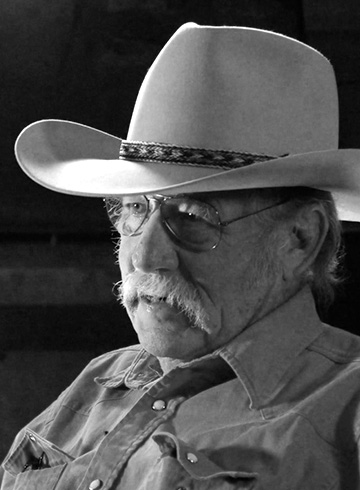
Wes McKinley is a rancher, former schoolteacher, and whistleblower from southeastern Colorado. In 1992, he was appointed as the foreman of a Special Federal Grand Jury investigating crimes at Rocky Flats. Driven by a commitment to truth, the jury broke their oath of secrecy to expose "an ongoing criminal enterprise" at Rocky Flats.
Wes mcKinley
Grand Jury foreman and

Wes McKinley is a rancher, former schoolteacher, and whistleblower from southeastern Colorado. In 1992, he was appointed as the foreman of a Special Federal Grand Jury investigating crimes at Rocky Flats. Driven by a commitment to truth, the jury broke their oath of secrecy to expose "an ongoing criminal enterprise" at Rocky Flats.
Wes mcKinley
Grand Jury foreman and
former Colorado Representative
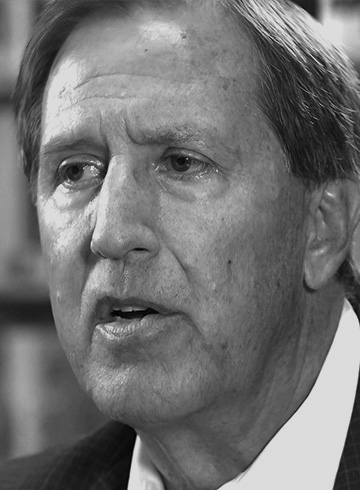
Dr. Mark Johnson has served as the director of Jefferson County Public Health since 1989, overseeing the health of the county where Rocky Flats is located. Dr. Johnson has voiced concerns about opening the Rocky Flats site and housing development on nearby contaminated lands.
Dr. Mark Johnson
Public health Director

Dr. Mark Johnson has served as the director of Jefferson County Public Health since 1989, overseeing the health of the county where Rocky Flats is located. Dr. Johnson has voiced concerns about opening the Rocky Flats site and housing development on nearby contaminated lands. Despite facing criticism from detractors, he remains steadfast in his advocacy for the health and safety of local residents.
Dr. Mark Johnson
Public health director
for Jefferson County
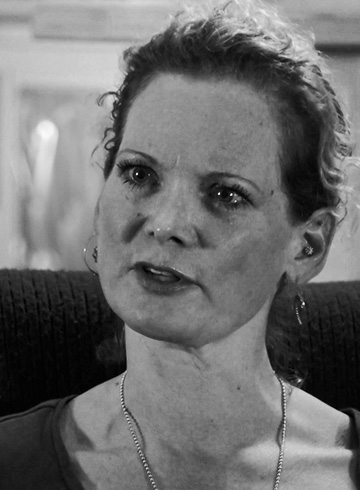
Tiffany Hansen grew up just downwind of the Rocky Flats nuclear weapons plant. After experiencing health issues, she discovered that many of her peers also suffered from unexplained illnesses. In 2015, she launched the Rocky Flats Downwinders campaign, which has documented hundreds of cases of rare cancer in the local community.
Tiffany Hansen
Rocky Flats Downwinders

Tiffany Hansen grew up just downwind of the Rocky Flats nuclear weapons plant. After experiencing health issues, she discovered that many of her peers also suffered from unexplained illnesses. In 2015, she launched the Rocky Flats Downwinders campaign, which has documented hundreds of cases of rare cancer in the local community.
















.png)
























